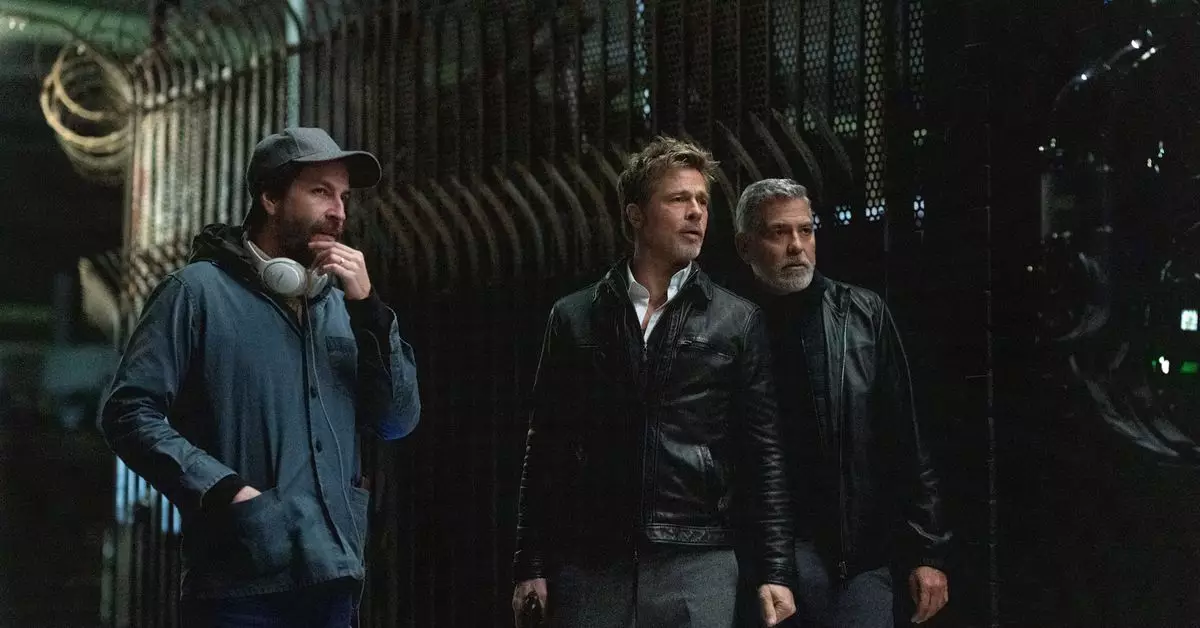The film industry is in a state of flux, particularly as the rise of streaming platforms creates a new paradigm for content creation and distribution. As traditional theatrical releases face challenges, filmmakers are grappling with how to navigate their relationships with studios. This article examines the tension between creative vision and corporate strategy, particularly in the case of Apple’s handling of director Jon Watts and his recent revelation regarding the sequel to their hit film, *Wolfs*.
Jon Watts, acclaimed director best known for his work on the *Spider-Man* franchise, recently expressed his discontent over Apple’s abrupt change in strategy concerning *Wolfs*. Initially, Apple had greenlit a sequel, signaling their confidence in the project. However, as reports emerged about the company’s hesitance towards wide theatrical releases due to financial concerns, Watts felt a disturbing shift in their commitment to creative collaboration. The New York Times highlighted that Apple’s decision to scrap a theatrical run for *Wolfs* was driven by fears of escalating costs in the wake of several box office failures. Such financial anxiety not only alters the landscape for filmmakers but raises questions about the long-term viability of partnerships between creatives and corporations.
Trust and Creative Freedom: A Fragile Balance
Watts stated that his decision to withdraw from the *Wolfs* sequel was predominantly influenced by a growing lack of trust in Apple’s vision as a creative partner. After learning that the company had made significant changes to their release strategy without consultation, Watts felt compelled to return the payment for the sequel and distance himself from the project. This incident underscores a critical issue in the film industry: the balance between artistic integrity and commercial interests. Filmmakers often rely on studios not just for funding but also as collaborators that share a vision. When that trust erodes, it compromises the creative process and leaves directors questioning their choices.
Watts is not alone in his grievances. Director Doug Liman, while working on *Road House* for Amazon, experienced frustrations regarding the shifting expectations of streaming companies. Liman recognized that while Apple was transparent about its plans for *The Instigators*, there remains a challenge for filmmakers to maintain their artistic voice amid corporate pressures. Similarly, Steve McQueen has openly lamented the limited release of his World War II film *Blitz*, showcasing the broader trend of directors feeling sidelined in the face of streaming platforms prioritizing metrics over artistic expression.
The contrast between successful streaming releases, like *The Instigators*, and disappointing box office results is also telling. Analysts suggest that while some films resonate well with audiences upon their streaming debut, the financial gamble of theatrical releases becomes ever more daunting for companies like Apple. The outcome leads to hesitance among filmmakers who may experience their projects sidelined or inexplicably altered.
The Future of Theatrical Releases: A Cautious Path Forward
As Apple and other streaming platforms re-evaluate their theatrical strategies, the repercussions ripple through the industry. Filmmakers must now contend with shifting expectations and priorities, often at the cost of their creative vision. Watts’ resignation from the *Wolfs* sequel serves as both a warning and an illustration of the increasingly fragile relationship between creatives and corporations. To ensure a sustainable creative ecosystem, companies need to foster transparency and collaboration. The industry must also recognize that good storytelling requires a deep partnership rather than a mere transactional relationship.
Navigating the complexities of the modern film landscape requires thoughtful consideration from all stakeholders. As streaming platforms like Apple strategically rethink their approach to film distribution, directors like Jon Watts, Doug Liman, and Steve McQueen serve as emblematic figures highlighting the real risks when trust erodes. Finding common ground between artistic vision and corporate needs may not only save individual projects but could also pave the way for a thriving creative community that values both innovation and integrity. The onus now lies with streaming giants to honor the trust invested by filmmakers while recognizing the intrinsic value of storytelling at its core.


Leave a Reply